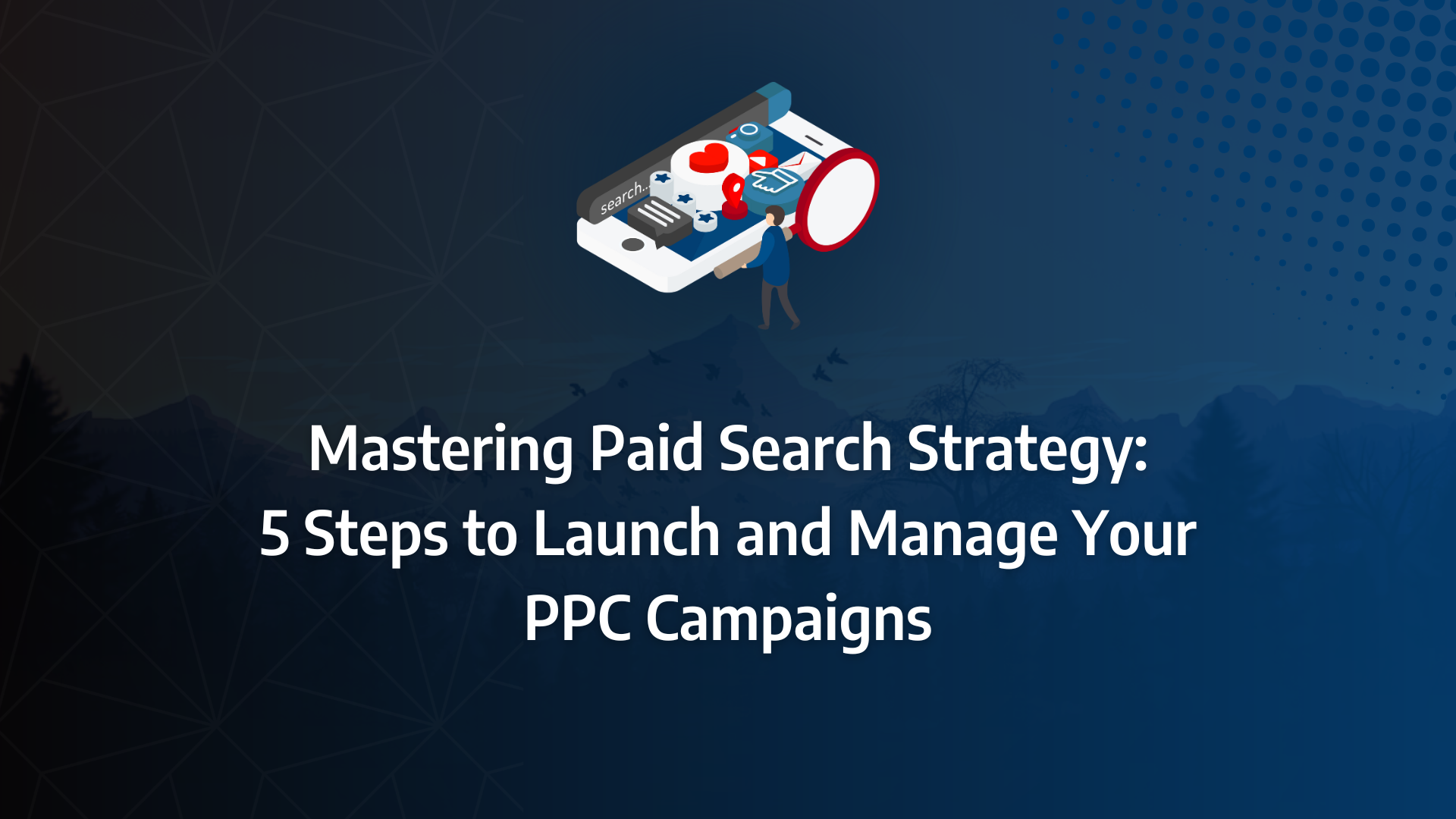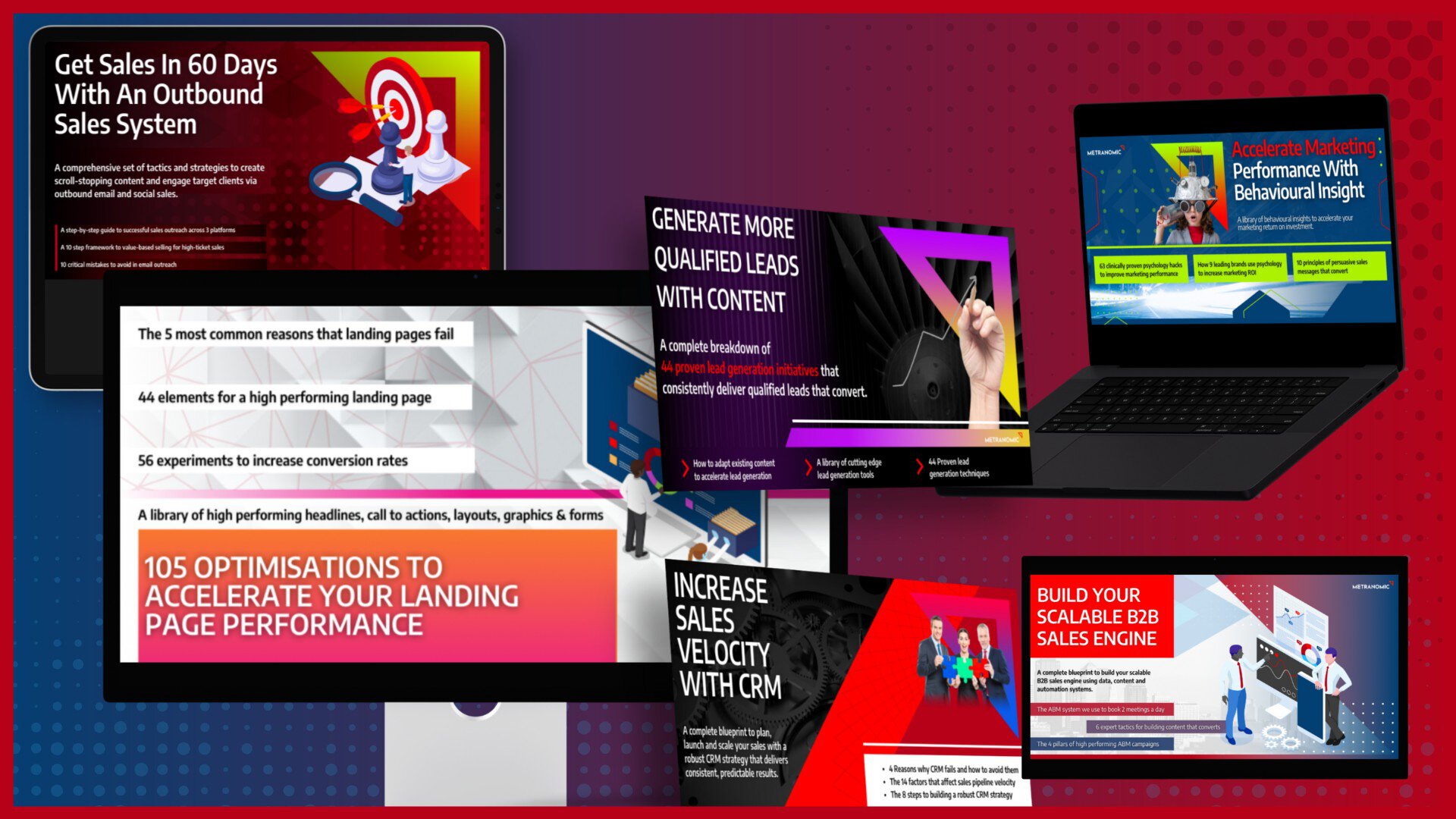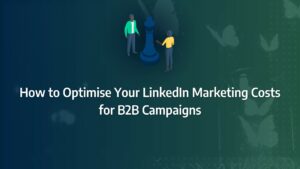Are your PPC campaigns delivering the results you need, or are you struggling to see the ROI you’ve been aiming for? Paid search strategy is a critical component of digital marketing success, but it’s also one of the most complex to master. Many marketers face challenges in keyword research, ad creation, and campaign optimisation, often leading to missed opportunities and wasted budgets.
In this guide, we’ll break down a step-by-step approach to mastering your paid search strategy. From selecting the right keywords to crafting compelling ad copy and fine-tuning your budget allocation, you’ll discover proven methods that have helped top brands achieve exceptional results.
- Comprehensive Keyword Research: Begin with thorough keyword research to identify high-value terms that align with your target audience’s search intent.
- Effective Ad Creation: Craft compelling ad copy that resonates with your audience, focusing on strong headlines, clear value propositions, and strategic use of ad extensions.
- Optimised Budgeting and Bidding: Allocate your PPC budget strategically and choose the right bidding strategies to maximise your return on ad spend.
- Continuous Monitoring: Regularly monitor key metrics such as click-through rates and conversions to identify areas for improvement in your campaigns.
- Data-Driven Optimisation: Analyse campaign performance data to make informed adjustments that enhance future campaign outcomes.
- Utilise the Right Tools: Leverage PPC management tools like Google Ads to streamline campaign management and improve efficiency.
- Avoid Common Pitfalls: Be aware of common PPC mistakes and implement strategies to avoid them, ensuring your campaigns remain effective and cost-efficient.
What are the key factors influencing visibility in paid search ads?
Paid search is a sophisticated online advertising method enabling companies to connect with potential customers by placing sponsored ads on search engines to boost website traffic. This strategy ensures a wide reach as it encompasses all major search engines, including Google, Bing, and Yahoo. These ads are typically concise and appear at the top of search results, making them highly visible. They are usually labelled as “ad” or “sponsored” to distinguish them from organic results.
Several factors influence where your ad is positioned on Google SERPs:
- Bidding: Ads are placed through an auction-based system, where the highest bidder secures the top placement in search results.
- Keywords: Companies must select relevant and well-targeted keywords to determine which ads appear in search results.
- Relevancy: Ads must be pertinent to the query; otherwise, they won’t be displayed on the SERPs, regardless of the bid amount.
- Landing Page Quality: Advertisers need to ensure their landing pages are optimised so that users who click on their ads remain engaged on the site rather than bouncing back to the search engine.
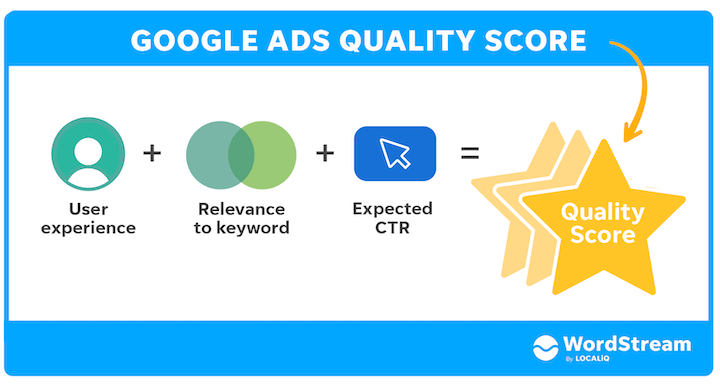
Understanding these elements is crucial for developing an effective paid search strategy. Proper management of paid search involves meticulous planning and execution to achieve desired outcomes. Additionally, employing specific paid search tactics can enhance the effectiveness of your campaigns.
What Matters Most?
Understanding audience segmentation is fundamental for crafting ads that genuinely resonate. Clients often discover that when they tailor their campaigns to specific customer profiles, engagement rates soar. Emphasising user intent allows us to align messaging with customer needs, typically leading to enhanced conversion rates. Additionally, monitoring competitors’ strategies gives us insights that empower proactive adjustments.Get In Touch
What is Search Engine Optimisation (SEO)?
SEO, or search engine optimisation, is the process of tailoring your digital presence to align with the algorithms and requirements of search engines. This optimisation is crucial as the majority of people utilise search engines when seeking information or products.
SEO’s significance lies in its ability to build organic traffic, referring to visitors who find your website through search engine results rather than paid ads. Here are some of the key benefits:
- Builds Organic Traffic: SEO drives organic traffic, enhancing the visibility and discoverability of your website.
- Cost-Effective Long Term: Unlike paid strategies, SEO does not incur costs per click, making it a more economical option over time.
- Improves Trust and Credibility: Websites that rank highly in organic search results are often perceived as more trustworthy and credible.
- Sustainable Growth: SEO can provide sustainable growth as traffic continues to increase even if you pause active marketing efforts.
However, there are also drawbacks to consider:
- Delayed Results: Achieving high rankings can take considerable time and effort.
- Competitive Keywords: Highly sought-after keywords can be challenging to rank for due to intense competition.
- Algorithm Changes: Constant updates to search engine algorithms can impact your rankings and require continuous optimisation.
- Time-Consuming: Effective SEO requires ongoing effort in content creation and optimisation, which can be tedious and resource-intensive.
What is Pay-Per-Click (PPC)?
Pay-per-click marketing, commonly referred to as PPC, is an advertising model where businesses pay a fee each time one of their ads is clicked. This method is designed to drive traffic to websites by placing ads at the top of search engine results pages (SERPs). These advertisements are clearly marked with a “sponsored” tag, distinguishing them from organic search results.
To develop an effective paid search strategy, it is crucial to identify the keywords and search queries that are most relevant to your business. By strategically targeting these terms, your ads will appear when potential customers search for products or services that align with your offerings.
Given the competitive nature of PPC, many businesses vie for the same advertisement space on SERPs. To outbid your competitors, it is essential to invest wisely in your PPC campaigns. The company that allocates the most substantial budget for a particular keyword will secure the top ad position.
Benefits of PPC
- Quick Results: One of the most significant advantages of PPC is the immediacy of results. By bidding on advertising space, your business can swiftly gain visibility and attract clicks, facilitating rapid customer acquisition.
- Targeted Audience Reach: PPC allows for precise targeting, enabling your ads to reach the right audience based on specific keywords that relate directly to your products or services. This strategic approach ensures that your marketing efforts are directed towards potential customers who are actively seeking what you offer.
- Prominent SERP Placement: As mentioned, PPC ads are prominently displayed at the top of SERPs, above organic results. This prime positioning increases the likelihood of attracting clicks and driving traffic to your site.
Drawbacks of PPC
- Expense: While PPC can be effective, it is often costly as a long-term strategy. Each click incurs a fee, and these costs can accumulate quickly, making budget management crucial.
- Uncertain Profitability: There is no guarantee of a positive return on investment with PPC. Competitive bidding may result in higher costs without assured visibility, and even when ads do appear, a significant percentage of users bypass sponsored results in favour of organic links.
- Temporary Visibility: The visibility afforded by PPC is inherently temporary. Once you cease paying for the ads, your presence on SERPs vanishes immediately, which can lead to a rapid decline in traffic and visibility.
To manage paid search effectively and optimise paid search outcomes, it is imperative to continually refine your paid search tactics. A well-crafted paid search campaign strategy, supported by ongoing optimisation efforts, can significantly enhance your ability to attract and retain valuable leads.
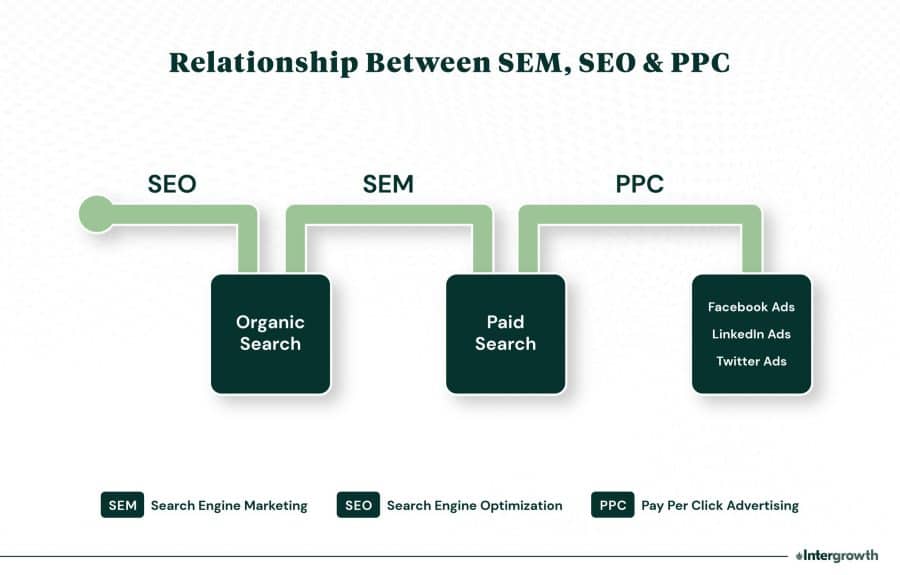
Top 5 Benefits of Paid Search Campaigns
Extremely Targeted: A well-executed paid search strategy can significantly bolster business objectives, whether you’re aiming to raise awareness for a new service, increase product sales, or grow your email marketing list. Paid search campaigns enable your marketing team to meticulously research and bid on specific keywords related to your offerings. Initially, it is advisable to start with a list of 15-25 keywords to monitor performance and make necessary adjustments. The versatility of ad-targeting tools allows for highly granular targeting based on factors such as location, device, language, time of day, and even previous web visits.
Source: WebFX
Quick to Execute: Unlike SEO, which can take months to yield visible results, paid search delivers almost instant visibility for your chosen keywords. This immediate impact makes it an invaluable component of any paid search campaign strategy. By implementing the right paid search tactics, you can ensure your ads appear at the top of search results quickly, driving immediate traffic to your site.
Cost-Effective: One of the standout benefits of paid search is its cost-effectiveness. With Google Ads, you only incur costs when someone clicks on your ad, ensuring that your budget is spent on engaging potential customers rather than merely generating impressions. Additionally, there is no minimum spending requirement, making it an attractive option for smaller businesses looking to manage paid search effectively and optimise paid search expenditure within a limited budget.
Versatile Ad Formats: Paid search campaigns offer a variety of ad formats to suit different marketing objectives. From text ads to display ads, and shopping ads to video ads, you can choose the format that best aligns with your campaign goals. This versatility allows for creative freedom in crafting compelling ads that resonate with your target audience.
Measurable Results: Another critical advantage of paid search is the ability to measure and analyse performance in real-time. Detailed analytics provide insights into which keywords are driving traffic, which ads are performing best, and how users are engaging with your site. This data is invaluable for refining your paid search campaign strategy and ensuring ongoing optimisation to maximise results.
What are the essential steps to launch a successful PPC campaign?
1. Conduct Thorough Keyword Research
The cornerstone of any effective paid search strategy is comprehensive keyword research. The primary aim is to position your ads in front of users actively searching for your products or services. While the allure of advanced features is strong, beginning with the fundamentals is crucial. Avoid relying solely on broad, generic keywords. Instead, explore a diverse range of terms, considering that around 15% of daily Google queries are entirely new. Utilising keyword mapping can help you connect related topics, enhancing the relevance and effectiveness of your campaign.
2. Understand Keyword Match Types
Keyword match types are pivotal in shaping the visibility and relevance of your ads. There are three primary match types:
- Exact Match: Closely related to the specific search query.
- Phrase Match: Slightly broader but still maintains a high degree of relevance.
- Broad Match: Captures a wider array of related queries.
Though exact match types aren’t entirely precise, understanding and effectively utilising these match types is essential. Assess your comfort level with these match types and consider refining your knowledge to ensure your keywords are optimally matched to user queries.
3. Regularly Review Search Term Reports and Use Negative Keywords
To manage paid search effectively, it’s vital to frequently review search term reports. The dynamic nature of search queries necessitates ongoing adjustments to ensure relevance. Incorporate negative keywords to filter out irrelevant traffic, thus refining your campaign’s focus. This practice helps in channelling queries into more suitable campaigns, enhancing overall efficiency and effectiveness.
4. Implement Conversion Tracking
Conversion tracking is indispensable for the success of your paid search campaigns. At the account level, establish conversion actions aligned with your campaign goals. These could range from driving phone calls to generating leads or fostering video engagement. Selecting the right conversion actions ensures you can accurately measure and optimise the performance of each campaign.
5. Use the Right Bidding Strategy
Selecting an appropriate bidding strategy is critical to optimising your paid search campaign strategy. Your chosen strategy should align with your campaign objectives, whether focusing on clicks, impressions, or specific conversion metrics. By tailoring your bidding strategy to your goals, you can maximise the return on investment and ensure your ads are effectively positioned to achieve desired outcomes.
6. Continual Optimisation and Management
Consistent optimisation is key to maintaining the efficacy of your paid search tactics. Regularly monitor performance metrics, adjust bids, and refine keywords to ensure your campaigns remain relevant and competitive. By staying proactive in managing your campaigns, you can continually optimise paid search efforts, driving sustained success.
Paid Search Strategy Best Practices
Don’t Overlook Bing Ads
While Google Ads often dominate the conversation in PPC advertising, leveraging Bing Ads can uncover significant opportunities. Bing remains the world’s second most popular search engine, with notable market shares:
- 7.85% across all devices
- 17.21% among desktop users
- 38.46% among console users
Incorporating Bing Ads into your paid search campaign strategy can offer a competitive edge, particularly if your competitors are not utilising this channel. Additionally, keyword costs on Bing are typically lower, enhancing cost efficiency. A robust paid search strategy should utilise multiple channels to maximise reach and effectiveness.
Optimise Your Google Ads for Voice Search
Voice search is not merely a trend but a fundamental shift in user behaviour. As more people use voice search for convenience, particularly while multitasking, optimising your paid search strategy for this medium becomes essential. Crafting voice search optimised ads requires understanding how users phrase their queries verbally. For instance, instead of typing “Italian Restaurant,” users might say, “Find me a good Italian restaurant nearby.”
To capitalise on this, your ads should feature long-tail keywords that sound natural in conversation. This approach leverages natural language processing (NLP) to ensure your ads align with the way people speak, improving visibility and engagement.
Source: CreativeMarketing
Double Down on Long-Tail Keywords
Long-tail keywords have always been effective in driving both paid and organic search traffic, and their importance has grown. Approximately one-third of search queries consist of more than three to four words. For example, if you operate an online store selling car care products and wish to promote a headlight restoration kit, targeting specific phrases like “Best Way to Clean Headlights” or “Clean Foggy Headlights DIY” can yield better results than broader terms.
Focusing on these niche, highly specific terms can reduce costs per click and attract high-quality leads who are precisely searching for your offerings.
Ad Copy Optimisation
Creating compelling ad copy is critical for capturing users’ attention and encouraging clicks. Begin by understanding your target audience’s needs and craft ad copy that addresses these needs with a clear value proposition. Start with a strong headline incorporating relevant keywords to grab attention. Use concise, persuasive language to highlight the benefits of your services.
Incorporate ad extensions, such as site links, callouts, and reviews, to provide additional information and increase visibility. Experiment with various ad formats, such as expanded text ads or responsive search ads, to determine what resonates best with your audience. Regularly test and optimise your ad copies through A/B testing, comparing different headlines, descriptions, and CTAs to identify the most effective combinations. Monitor key metrics like click-through rates (CTRs) and conversion rates to make data-driven improvements.
Utilise Ad Extensions
Ad extensions enhance your PPC ads by providing more information and improving visibility on SERPs. Leveraging ad extensions can significantly boost your ad’s CTR and overall performance. Various ad extensions include:
- Site Link Extensions: Add links to specific pages on your site, increasing the chances of users finding relevant information.
- Call Extensions: Display your phone number directly in the ad, making it easy for potential customers to contact you.
- Location Extensions: Show your business address alongside the ad, facilitating local customers to find and visit your physical location.
- Review Extensions: Showcase positive reviews and ratings, building trust and credibility.
Ensure that your ad extensions align with your campaign goals and provide valuable information to users. Regularly review their performance and experiment with different variations to find the most effective combinations.
Our Tactical Recommendations
From our experience, regularly testing ad copy alongside A/B testing on landing pages is crucial for optimising performance. Automating bidding strategies based on real-time data enables us to maximise ad performance while remaining budget-conscious. Finally, implementing a strong negative keyword strategy effectively filters out irrelevant traffic, reducing wasted spend and enhancing overall return on investment.Get In Touch
What common mistakes should I avoid when managing my paid search campaigns?
Lazy Keyword Analysis
A critical error in developing a paid search strategy is relying on inadequate keyword analysis. Your keywords must be precisely aligned with specific queries relevant to your target audience. Conducting thorough market research is imperative to identify the most effective keywords that will make your calls to action resonate with searchers.
By targeting relevant keywords, your efforts will yield higher impressions and conversions. Using the correct match types for these keywords ensures you get these conversions at the lowest possible cost. Proper utilisation of keyword tools and continuous optimisation through search-term reports are essential for enhancing your targeting. How you organise your keywords within a campaign and your strategy for continually adding terms from search-term reports will keep your ads relevant. Neglecting to update negative keywords can result in your ads appearing for inappropriate queries, potentially damaging your reputation and bottom line.
Solution: Select the right keywords and match types. The quality of clicks is far more critical than the quantity.
Weak Conversion Tracking
Even with excellent keyword analysis and highly targeted ads, your efforts can fall flat without effective conversion tracking. Users may leave your landing page if the call-to-action (CTA) is weak or if the page is cluttered and confusing. It’s essential to create a seamless user journey from the ad click to your website, clearly communicating the value proposition.
Setting up robust conversion tracking is crucial. Use tools like Google Ads Conversion Tracking to measure how users interact with your ads and identify what drives the most engagement. Alternatively, consider hiring an SEO agency to implement the necessary tools to gather data and optimise your marketing efforts.
Solution: Implement conversion tracking tools to monitor and enhance the performance of your campaigns.
Essential Tools for Managing Paid Search
Analysing the competition and staying abreast of market trends is vital for managing your paid search campaigns. The following tools provide valuable insights:
- Google Ads Transparency Center: This tool allows you to see what ads any verified advertiser is running across Google networks. It offers insights into your competitors’ messaging, visuals, and offers, helping you refine your own ads.
- Google Trends: Google Trends helps track the popularity of terms, topics, or companies over time and by location. It allows you to compare trends, track brand growth, and shape your channel strategy based on search intent data.
- SpyFu: SpyFu provides data on the keywords a domain is ranking for, both organically and through paid search. It also shows top competitors, estimated clicks, and ad spend, helping you benchmark against competitors.
- Semrush: Semrush offers comprehensive data on keywords, search volume, CPCs, and traffic. It enables keyword gap analysis against competitors. Although the free version is limited to 10 requests per day, it is valuable for gaining a rounded view when combined with other tools.
By using these tools, you can effectively manage paid search, optimise paid search efforts, and refine your paid search campaign strategy for better performance.
